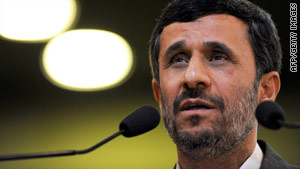Brazil truth commission arouses military opposition

A package of reforms put forward by the Brazilian government to improve human rights is causing growing controversy.
A proposed truth commission to investigate torture during military rule is said to have so angered forces chiefs that they threatened to resign.
Parts of the Catholic Church have opposed moves thought sympathetic to abortion and gay civil unions.
President Luiz Inacio Lula da Silva is to consider how to deal with the row when he returns to work this week.
'Sense of one-sidedness'
The National Human Rights Plan first provoked a row when it was revealed that it proposed setting up a truth commission to investigate torture and killings carried out during the 21 years the military was in control, from 1964 to 1985.
Although the number of victims in Brazil was far smaller than under military rule in neighbouring Argentina and Chile, hundreds of people died and thousands were tortured or forced into exile.
In the period before democracy was restored an amnesty law was passed, in effect granting immunity to state officials involved in torture as well as those in the opposition who had resorted to violence.
Military chiefs believe the truth commission is an attempt to get round the amnesty law, while supporters argue it is simply designed to secure justice for the families of those who died and disappeared.
President Lula reportedly had to head off possible resignations by his defence minister and senior military figures, including the heads of the navy, air force and army, by promising to review the matter.
Brazil's former President, Fernando Henrique Cardoso, told the BBC the government had not presented the proposal well.
"The way the situation has been presented was in the sense that all the crimes that had been exercised by those in power in the past would be judged, not the crimes that also the other side eventually could have responsibility for," he said.
"So this gave a sense of one-sidedness, and this produced unrest in the armed forces."
"I don't think it was necessary to produce this unrest. I don't understand why, since a text had been approved by both sides before, why at the last minute a change was introduced to turn the text so one-sided," he added in the BBC interview.
"I think they are creating an unnecessary political issue - and with this an obstacle to what is important, which is to know the truth about the past."
The issue is a delicate one for President Lula, who was himself briefly imprisoned as a union leader under military rule, while prominent members of his Workers Party were involved in the resistance.
Some military figures are suggesting the commission could look both at the actions of the country's then military rulers and those who used violence to oppose them, but the minister behind the proposal says he would resign if that approach was adopted.
With sections of the Catholic Church, the media and his own agriculture minister antagonised by other aspects of the human rights plan, the president will have a challenge to find a solution that is acceptable to all sides.








